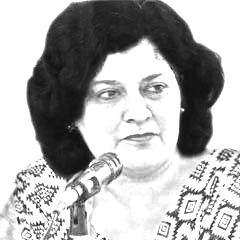Pakistan is the fourth worst country for women according to a recently released ‘Women Peace and Security’ Index. In the list of 153 countries, Pakistan was ranked at 150 with very high rates of gender discrimination and low financial inclusion for women.
The findings of the index were surprising and almost unbelievable when they were first made public. However, recent comments from the Chief Justice of Pakistan does make it more believable. The honourable judge’s remarks about ‘women’s skirts’ in front of a large audience is telling evidence of how deeply misogyny and sexism has penetrated our society.
Though these comments were not the first of their kind, this time around, they came from a person who is not expected to reflect society’s prejudices and biases and rather be an example of justice and equality.
In another video that surfaced on social media, an Imam in London said that a woman who uses perfume should be declared adulterous and should be flogged a hundred times. I couldn’t help but wonder what punishment has been prescribed for men who apply perfume?
Given the pervasive misogyny and bigotry even in these ‘educated’ minds, it seems that there is a long and arduous journey to be made before we start accepting women as equal human beings. How long will it take is a question that remains unanswered.
Recently, there was much controversy about a certain political leader’s marriage proposal to his spiritual guide. Once again, this exposed Pakistan’s misogynistic mindset, as several people immediately began to question the woman’s character
Moreover, the politicians and religious leaders seem to largely rely on the misogynistic rhetoric shamelessly employed to please the masses. For them, every problem begins with and ends upon the woman.
Unfortunately, we are conditioned to believe that we have the privilege of distributing ‘character certificates’ for women and men alike.
Recently, there was much controversy about a certain political leader’s marriage proposal to his spiritual guide. Once again, this exposed Pakistan’s misogynistic mindset, as several people immediately began to question the woman’s character.
Certain people were trying to portray the woman’s former husband as the victim of a cheating spouse because the woman allegedly demanded divorce after receiving a proposal from another man.
We have also not forgotten the shocking decree by a religious scholar who said that if a woman disobeys her husband, she can be flogged gently or harshly.
In a society where many myths and religious misinterpretations are still a part of cultural fabric, a woman who is getting married is still advised to stick to her husband till her death and if she refuses to sleep with the husband, she is told that she will be sent to hell for eternity.
If a woman is expressing her desire to separate with her husband, all doubts are cast upon her; acchi hoti tau shohar talaq na daita (If she was good, she would have never been divorced). Interestingly, the right to divorce is only preserved for men, though there is a clause in the wedlock contract which allows the woman to divorce her husband. Women are deliberately kept in dark about this clause.
In case a woman is asking for Khula, the certificate issuance authority is sure even without investigating that there is something wrong with the woman.
The patriarchal society allows a man to get married as many times as he wishes. However, this is not the case with women whose second marriage is always stigmatised.
A women, no matter what role she has, is always expected and even pressurised for every kind of sacrifice to uphold the respect and ‘honour’ of the family.
Our religious leaders would happily give justifications for the second, third and fourth marriage along with divorce, but we hardly see them preaching about the right of divorce for women.
Despite the ostensible headways in the form of bills and legislations for the progress of women, the situation remains as serious as it ever was.
Is it the misinterpretation of religion that controls the rights of a woman? Or is it the culture blended with religion that leaves no breathing space for women? Is it the impact of non-Muslim cultures and traditions that we have been into before partition? There are so many questions that need to be answered before we make some real changes and reforms.
It is high time that we made the crucial distinction between religious directives and cultural values.
Secondly, educational institutions need to be reformed as well. Boys at school and later in colleges and universities usually would look for an ‘ideal’ girl and that is generally the main objective.
A voluntary judgment of character is delivered as she doesn’t fit in the ideal image engraved in his mind since his childhood. She loses respect as a human being.
The writer has experience in the field of education and is currently working as a resource person in the development secto
Published in Daily Times, January 24th 2018.
